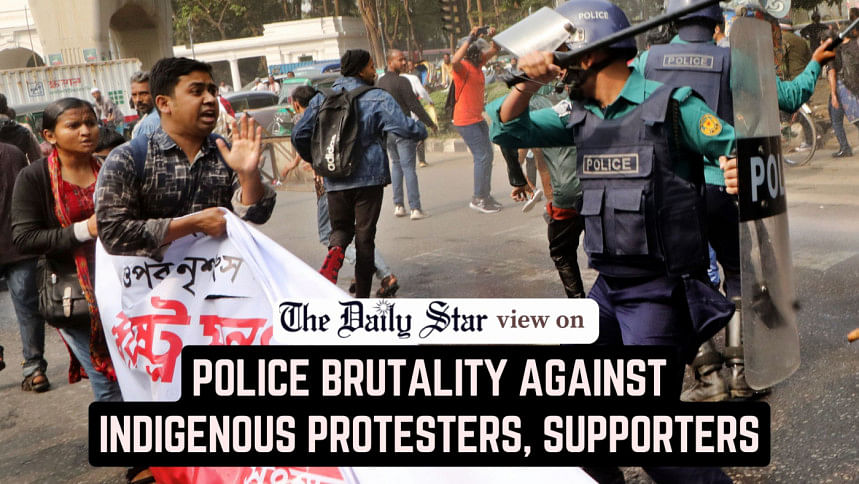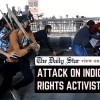Recent police actions need explaining

The heavy-handed actions of the police, which resulted in at least seven injuries during a protest march towards the home ministry on January 16, are deeply troubling. Reportedly, police employed water cannons, fired sound grenades, and wielded batons against protesters demonstrating against an attack on an Indigenous group and its supporters the previous day—an attack that police notably failed to prevent—which left at least 20 people injured.
What transpired on January 16 raises a critical question: did the police truly need to resort to such extreme measures? Based on the available information, the protesters appear to have remained peaceful. Even if they reportedly attempted to dismantle police barricades blocking access to the home ministry, could the police force not have sought to de-escalate the situation through dialogue? Was using violence genuinely necessary? Video clips of the incident show police officers viciously beating protesters—including female ones—with batons as they tried to flee. Among the injured, at least six were students. Considering the traumatic experiences our students endured only months earlier at the hands of various law enforcement agencies and others, shouldn't the police have exercised greater restraint in handling this situation?
Police's inaction on January 15, when an Indigenous group of protesters and their supporters were attacked by another group "claiming" to defend the country's sovereignty, followed by their excessive force a day later, bears an unsettling resemblance to their actions under the Sheikh Hasina regime. This raises serious doubts about the government's promise of reform, particularly in the policing sector. How can the public trust the government's commitment to justice when its law enforcement agencies act with such inconsistency and disregard for basic human rights?
The recent conduct of the police clearly betrays the spirit of the July uprising. We, therefore, call on the government to conduct thorough investigations into the events of both days, as well as the police's response to these incidents. While two individuals responsible for the attack on January 15 have been arrested, we urge the government to identify and hold to account all others involved. We also demand that the authorities ensure proper oversight of police actions going forward to prevent the repetition of such incidents.
It is crucial to remember that the central demand of the July uprising was to create a discrimination-free Bangladesh. Yet, these incidents demonstrate that discrimination continues to persist in our society. If systemic failures like these are not addressed, they will only deepen public mistrust and undermine the nation's progress toward equality. The government must recognise these troubling signs and take immediate corrective action to uphold the principles of justice and fairness for all citizens.

 For all latest news, follow The Daily Star's Google News channel.
For all latest news, follow The Daily Star's Google News channel. 









Comments